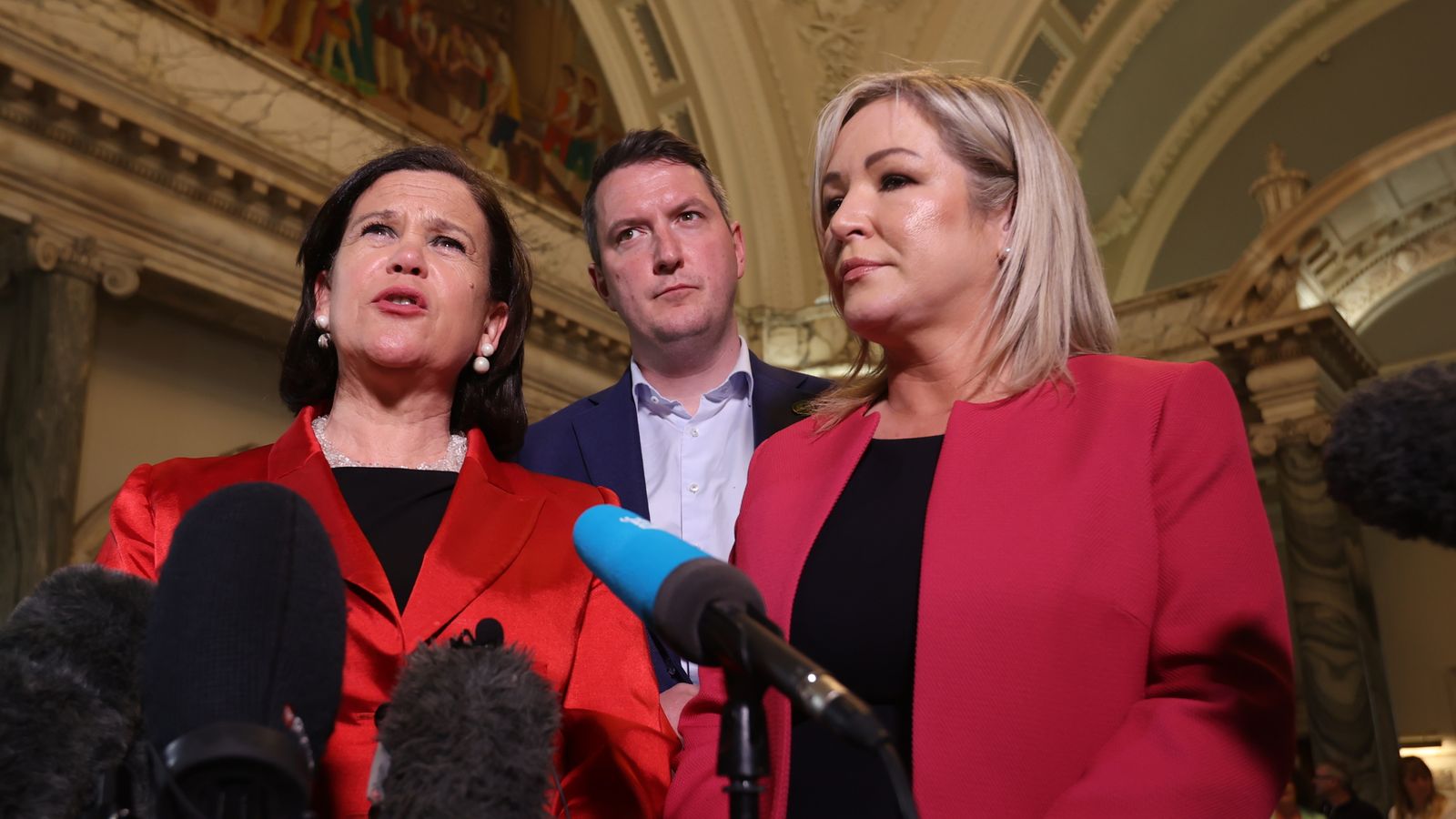Sinn Fein remains on course to become the largest party in Northern Ireland local government with more than half the council seats now filled following Thursday’s elections.
As counting of votes continued for a second day, the nationalist party has so far secured 99 councillors.
The DUP currently has 85 council seats, the Alliance Party 40, the Ulster Unionists 36, and the SDLP 21, with 18 others.
Three of the 11 council areas have completed their count – Lisburn and Castlereagh, Mid Ulster and Armagh, Banbridge and Craigavon, where Sinn Fein has emerged as the largest party for the first time.
The DUP has retained its position as the largest party in Lisburn and Castlereagh.
The Northern Ireland polls were conducted under the system of proportional representation known as the single transferable vote, with 462 seats to be filled.
Turnout generally appeared to be up slightly in areas which would be regarded as predominantly nationalist/republican and down slightly in areas viewed as unionist majority.
It is the first electoral test for the parties since last year’s Assembly elections and takes place against the backdrop of deadlock at Stormont, with the powersharing institutions not operating as part of a DUP protest against post-Brexit trading arrangements.
Read more:
Northern Ireland secretary ‘truly believes’ Stormont will be up and running by end of year
Northern Ireland needs ‘more confidence’, says the man who brokered peace deal
Sinn Fein president Mary Lou McDonald said the election results showed “a very strong showing for Sinn Fein right across the north”.
She added: “In the course of the election a lot of things were discussed, all the local issues but, in truth, the big issue was that of a return of the executive, the need to have government, the need to have leadership, the need to work together, to make politics work for everybody.
“So, for us, that is the significance of this result, it is undoubtedly a vote for progress, for change, for positivity and, above all else, for working together.”
Party vice president Michelle O’Neill said the British and Irish governments now needed to come up with a plan to restore powersharing.
She said: “We ran a very positive campaign.
“But on the doors the conversation was very much centred around the need to have a restored assembly and executive up and running.
“That needs to be done now without delay. We would call on both governments to get engaged and actually make that happen.
“There needs to be a plan now for a way back to a restored executive.”
DUP leader Sir Jeffrey Donaldson said if Sinn Fein emerges as the largest party in local government, unionism will have to “look at where it’s going”.
He said: “Let’s see when the final votes are all counted who is the largest party but, if Sinn Fein do emerge as the largest party in the council elections, I think yet again, as I’ve been saying, consistently, there are lessons that unionism needs to learn here.
“We can’t go on with a situation where turnout in unionist areas is significantly lower than in nationalist areas, you can’t go on with a situation where the unionist vote is continually splitting and splintering.
“The result of that is that seats are gifted to Sinn Fein and to others when the unionist vote is split, and when that unionist vote doesn’t transfer sufficiently.
“So, I think, we really do need to learn the lessons behind all of this, the DUP without a shadow of a doubt is by far the largest unionist party and I think that unionism needs to look at where it’s going and regroup around a strong voice for unionism, and see more co-operation between unionist parties.”
Be the first to get Breaking News
Install the Sky News app for free
Northern Ireland’s councils are responsible for setting rates, planning and waste collection as well as leisure services and parks.





